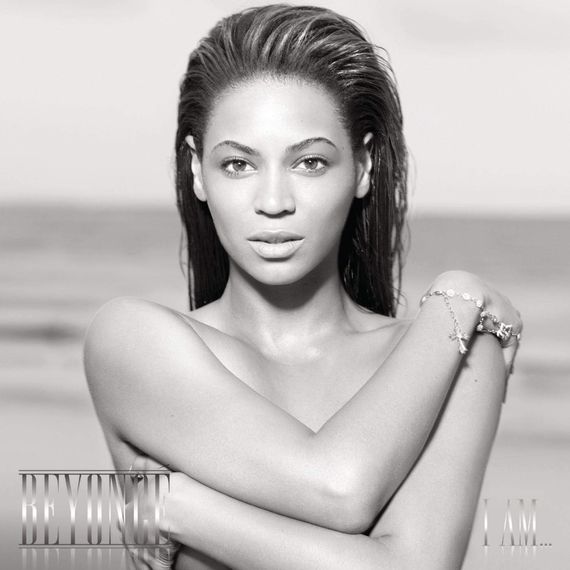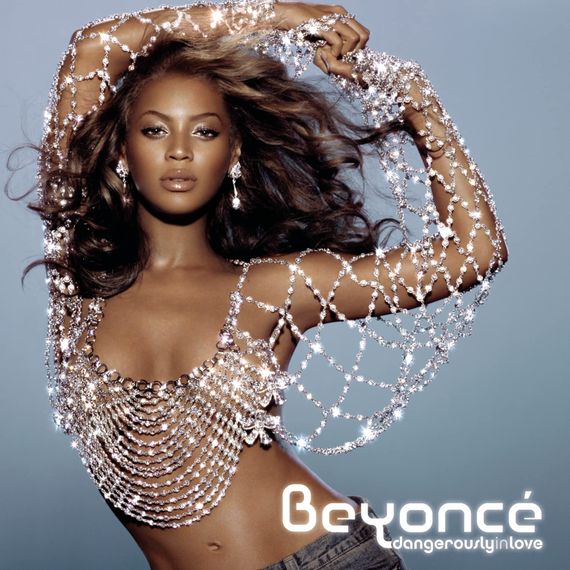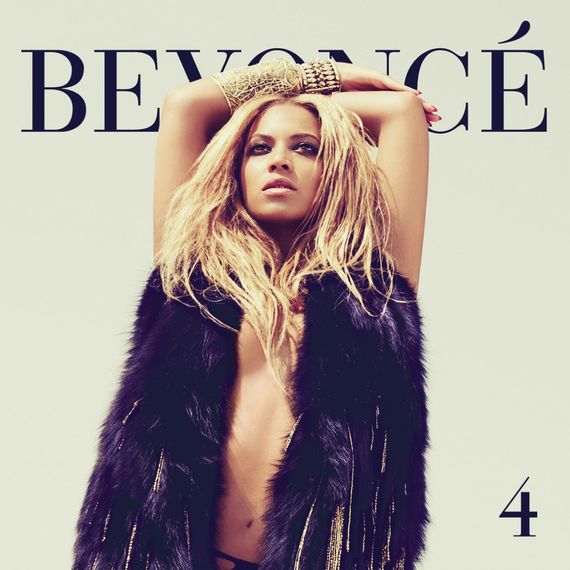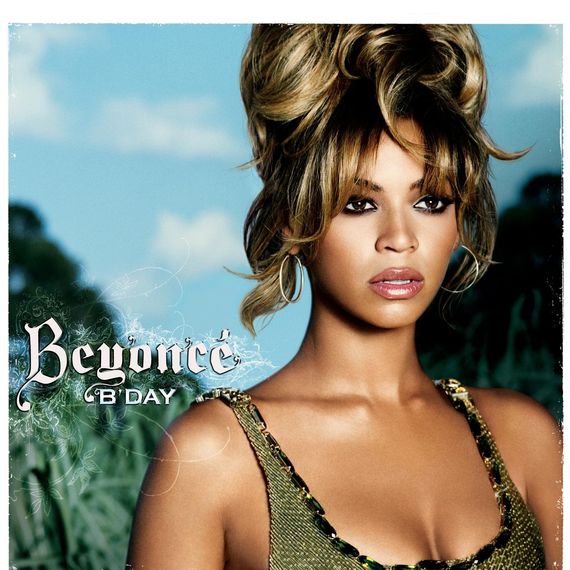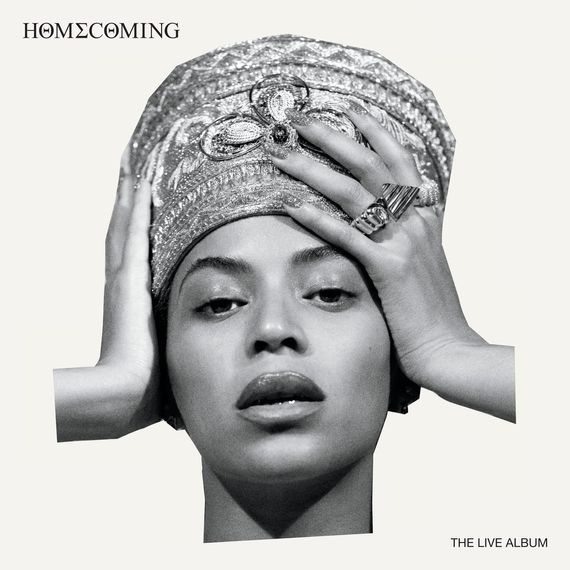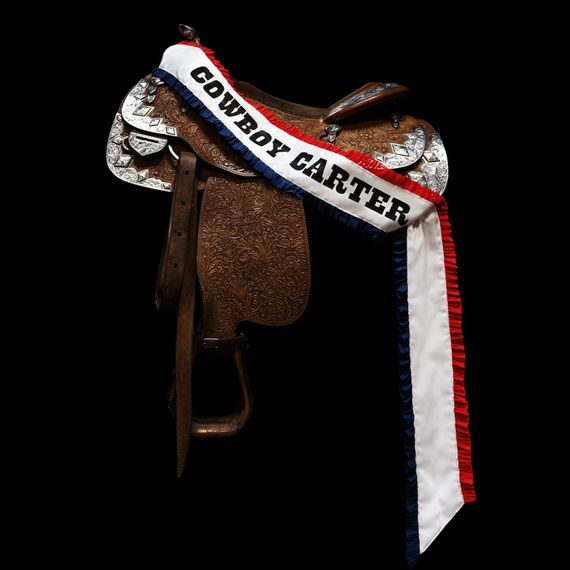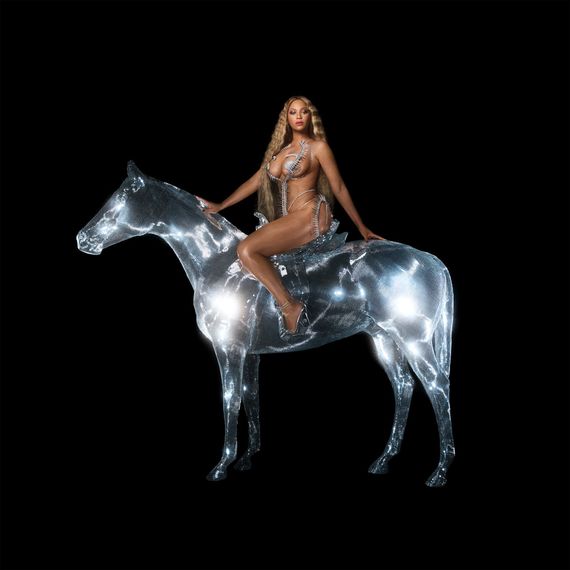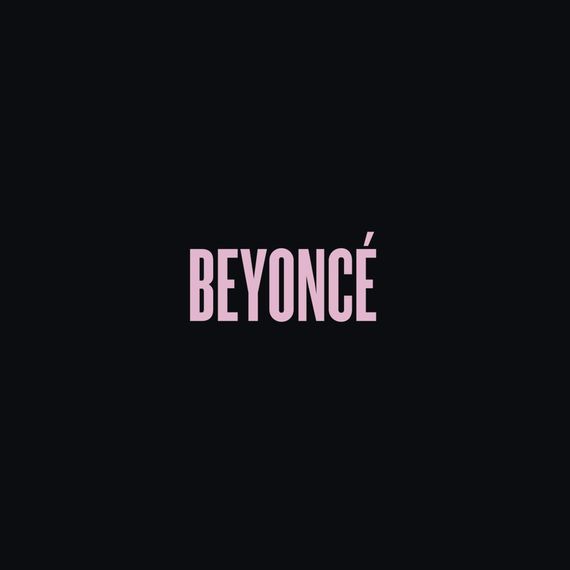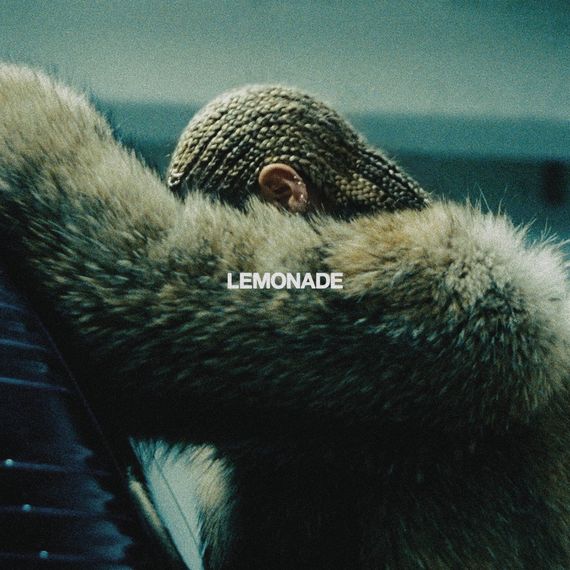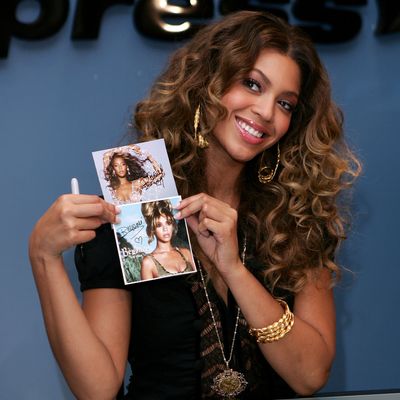
This post has since been updated with Beyoncé’s latest album, Cowboy Carter.
The past decade of Beyoncé has been marked by a series of pop-music paradigm shifts. The most prominent Black woman in music — and, arguably, American culture at large — has influenced not just the direction of mainstream pop but the very machinations of how it is produced, packaged, and sold. A survey of her career reveals a driven artist who has been grinding toward her dreams since she was in elementary school, singing and dancing her heart out for a shot at stardom. She got more than just a shot, she rewrote the rules — no interviews, please, I’ll write my own Vogue cover story, thank you very much — and in the process ended up somewhere unprecedented: the first female artist to have their first seven studio albums debut at No. 1 in the United States.
As the institution of Beyoncé has accrued more power and influence, the mystique of the artist Beyoncé has been carefully crafted over countless appearances, performances, videos, collections, and campaigns. But it all starts with the music: Without those No. 1 albums, there’s no foundation to build her empire, no platform to project her larger-than-life persona. So when tasked with the fool’s errand of ranking a career’s worth of chart-topping event albums, where does one even begin? What is it, exactly, that makes Beyoncé such a big deal?
To start, she makes music that has the potential to make you feel powerful. Beyoncé sells an image of inspirational confidence, wielding calculated vulnerability with forceful expressions of feminine power (#girlboss). Her brand of aspirational Black Capitalism® dovetails nicely with the stereotypical American Dream: Find your talent, work hard, and don’t give up, and you’re just a lucky break away from your first million. It’s an attractive aura, especially for women. Beyoncé can have it all, and she thinks I can, too!
The Black billionaire boss-lady persona she’s created is evidence of what’s possible when a rich and talented Black woman has the freedom to do whatever she wants and the influence to tell whomever has anything to say about it to politely fuck off. But early in her career, she vigorously fended off probes into her personal life, attempting to keep some part of herself to, well, herself, as she navigated the compromises required to ascend into the stratosphere of pop stardom. And as the fan base grew more ravenous — some might even say rabid — for more of her, she shifted to a more pragmatic approach, letting us in, but on her terms. Now she sells us the fantasy of intimacy, the dream of a parasocial relationship that feels as real as we want it to be, yet carefully calculated to shield her interior life. In that context, the best Beyoncé albums are the ones that reveal some truth: whether it’s artistic, biographical, or spiritual.
For this ranking, we considered the factors that made Beyoncé Knowles into the singular Beyoncé, the icon. We rewarded her risks and penalized her hedged bets. Generic ballads and love songs rated poorly; strong expressions of self-actualization and confidence were considered favorable. In order to consider the impact of the records at the time of their release, we excluded deluxe editions and only considered songs on the original pressing; she’s famous for recording dozens and dozens of tracks for each album cycle, and we believe the songs she selects for the initial drop reveal the most about her intentions, before she’s had a chance to make any market adjustments. We cut live albums (with one notable exception), her collaborative record with her husband (an anomalous tour vehicle), and the Lion King soundtrack, which is less a Beyoncé record than a curated collection that happens to feature a lot of Beyoncé. None of her solo albums are bad records, per se, but they each represent a different step in the evolution of her work and public persona, with different goals, inspiration, and execution, with varying degrees of efficacy. There’s a good chance you’ll disagree! I ain’t sorry.
9.
I Am … Sasha Fierce (2008)
Beyoncé created her Sasha Fierce alter ego as a child, using the dissociative technique to overcome her nerves as she stepped onstage to perform. I Am … Sasha Fierce splits those personalities between two discs, a clichéd attempt to highlight the dichotomy between her onstage self and her “true” self. The first disc, I Am…, comprises slow and mid-tempo pop and R&B ballads, while the second, Sasha Fierce, focuses on more danceable, radio-friendly beats. As usual, the singles are strong — the supercharged ballad “Halo” is sung with an intensity that would feel at home emanating from the pulpit; “Diva,” the propulsive Bangladesh sequel to “A Milli,” is drenched in swag and permanently in heavy rotation on half the fashion shoots in New York; and the anthemic hook on “Single Ladies (Put a Ring On It)” is so infectious it should come with a warning from the CDC.
But the rest of the run time is a bit of a slog, taking the wind out of the sails of her high-minded if well-treaded concept that ultimately scans a bit skin-deep. If nothing else, it proved her to be somewhat immune from criticism; the album was her first to receive decidedly mixed reviews yet still became another runaway commercial success, going platinum six times over. It’s not her best work, but it empowered her to make the records that would be.
8.
Dangerously in Love (2003)
It can be hard to imagine, but even with the success of Destiny’s Child and a magnetism that was undeniable by anyone with eyes and ears, Beyoncé was trying to establish herself as a legitimate solo artist when she dropped her 2003 debut. And it wasn’t just The New York Times, ridiculed in hindsight for dismissing her with the headline “She’s No Ashanti.” Just 21 years old, Bey was still leaning on co-stars such as Missy Elliott (“Signs”), Sean Paul (“Baby Boy”), her “pal” Jay-Z, and her father/manager, Mathew Knowles. “Crazy in Love” leaned on triumphant horn blasts and a dizzying drum break from the Chi-Lites’ “Are You My Woman (Tell Me So)” to climb to the top of the charts, a proof of concept for Bey and Jay’s chemistry. And while ballads like “Speechless” and the Luther Vandross duet “The Closer I Get to You” can be cloying at times, they also feature some of the strongest vocal performances of her career to that point.
But the record proved top-heavy, and her immaturity is glaring, nowhere more so than on the hidden track “Daddy,” a cliché-riddled tribute to her patriarch (“I want my unborn son / To be like my daddy”) that would age like milk in the wake of her parents’ divorce and her father’s alleged infidelity. She could clearly make hits, but she was still years away from the self-assured confidence that would come to define her music.
7.
4 (2011)
4 was Beyoncé’s fourth solo album, but it represented a few of her firsts: Her first record after severing ties with her manager (her father, Mathew, who had performed the role since her childhood), her first album produced for her new company Parkwood Entertainment, and the first time she appeared to stop trying to appeal to everyone, instead making the record she most wanted to see in the world. Working with the band from the Broadway musical Fela!, she leaned into a retro R&B aesthetic, with doo-wop, Philly soul, and ’80s-synth-ballad influences.
As an album, it doesn’t quite work. It’s too disjointed to be cohesive — the Major Lazer–sampling “Run the World (Girls)” feels shoehorned in — yet too restrictive to be truly innovative. But it’s responsible for perhaps her greatest ballad (the showstopper “1+1”) and an early glimpse at the songwriting talent of a nascent Frank Ocean, who had leaked his would-be debut for Def Jam just a month prior to meeting her. It’s also the first true risk she’s taken with her sound, eschewing the Euro-centric pop of the era in favor of something more true to herself. Comfortable, married, and settling into domestic bliss, this is Beyoncé letting down her guard — an attempt to dissolve the Sasha Fierce persona and reconcile the different parts of herself.
6.
B’Day (2006)
On B’Day, Beyoncé arranged, co-wrote, and co-produced every song for the first time. Largely inspired by her character in the film adaptation of Dreamgirls, in which a fictional 1960s group of three female singers navigate the music industry, this is Beyoncé at her most raw and exploratory — our first glimpse of an album in which she’s in complete creative control. She started to wield her wealth, embracing the role of a “Suga Mama,” who keeps her man close by showering him with cash, or offering to “play [her] part and let you play the lead role” while she “Upgrade U.” On the latter, there were still flashes of her aspirational Black Capitalist® aesthetic, and on her collaboration with her sister, Solange (“Get Me Bodied”), she toyed with the idea of getting dolled up to go out partying, like donning armor and heading into battle, a precursor to her later ode to neck-stomping heels in “6 Inch.” But she’s serving more sass than sap, and the hook on “Irreplaceable” is undeniable, the sort of thing we tell ourselves when we’re trying to be strong. The bonus disc with its Spanish-language version “Irreemplazable” largely flew under the radar but helped set the stage for her Spanish verse on the world-dominating remix of J Balvin’s “Mi Gente.”
5.
Homecoming (2019)
Few artists consider legacy on the same level of care and intention as Queen Bey. Back in 2011, she hired a digital archivist to maintain the literally hundreds of terabytes of photos, interviews, concerts, and other videos captured by her visual director and stored them in a climate-controlled digital-storage facility in Manhattan. In recent years, she’s applied that intention beyond her own personal sphere to celebrate and revive decades of Black music and culture. Her two-hour headlining set at Coachella — the first ever by a Black woman in the festival’s history — was predictably stunning, showcasing her vocal range and sheer musical athleticism, belting ballads and rapping bars, hitting low registers and falsettos all while leading dozens of dancers in high-energy choreography.
But what’s most impressive is how she seamlessly wove touchstones of the Black canon into her own oeuvre, capturing the electric energy of an HBCU halftime show. The resulting live album connected the dots between marching-band anthems of the Black South like “Swag Surfin,” TRU’s “I’m Bout It, Bout It” and Juvenile’s “Back That Azz Up” with wisdom from Black intellectuals such as Maya Angelou, Audre Lorde, W.E.B. Du Bois, and Toni Morrison. It’s probably the best encapsulation of post-“Formation” Beyoncé: an authentic pop synthesis of the Black experience, championing liberation, power, and joy. And she did more than just adopt the iconography of an HBCU homecoming, she shared the moment: with students in the marching band, fraternity step dancers, Destiny’s Child, Solange, her husband, her daughter. With all of us. She may have been standing atop the pyramid of success at live music’s crown jewel, but, miraculously, it felt like an act of generosity.
4.
Cowboy Carter (2024)
“This ain’t a country album,” Beyoncé explained in a statement introducing Cowboy Carter. “This is a ‘Beyoncé’ album.” Many will see allusions to her first encounter with the Nashville Establishment, a collaborative performance of “Daddy Lessons” with the Chicks that brought the house down at the 2016 CMAs — and subsequently fired up the racists in the tweets. But by 2024, this statement is less flex than fact. Cowboy Carter is not an example of Beyoncé altering her shape to fit into the restrictive boundaries of country music — itself already hostile to women and Black people. Rather, she bends the form to her own will, exploring her roots as a “Creole banjee bitch from Louisiana” who grew up in Texas going to the rodeo. It’s peppered with appearances from young Black female country singers: Brittney Spencer, Reyna Roberts, Tiera Kennedy, and Tanner Adell (who referred to herself as “Beyoncé with a lasso” on the title track of her 2023 EP, Buckle Bunny). And it pays homage in particular to Linda Martell, considered the first Black woman to have a country breakthrough with her 1970 LP, Color Me Country, an exception that has so far proved the rule that there is little room made for Black women in Nashville.
So in typical Bey fashion, she makes her own space. She draws from myriad references to the country canon, none more famous than Dolly Parton’s jilted-lover jam “Jolene,” in which she mercifully replaces Dolly’s desperate pleas (“Please don’t take my man”) with a sharp warning carrying an undertone of violence (“You don’t want no heat with me”). On the melancholy murder ballad “Daughter,” she connects the Italian arietta “Caro Mio Ben” — a treatise on longing for a lost lover — to the state of mind of a woman who’s just killed her man; on “Yaya,” she links Nancy Sinatra’s boots and the Beach Boys’ good vibes with the breathless propulsion of ’70s Tina Turner; and on “Sweet Honey Buckin’,” she brings the yeehaw agenda to the club, introducing Patsy Cline’s syrupy croon to the genre-bending Nigerian-American singer Shaboozey, galloping with four hooves on the floor to the dance floor. Sprawling and unwieldy, Cowboy Carter often threatens to lose the plot. But it’s held together by Beyoncé’s uncanny ability to find through-lines between cultural touchstones that are neatly tucked away into their own boxes. Rather than look for acceptance from those who would never grant it anyway, she annexes the space for her own territory.
3.
Renaissance (2022)
It will likely require the completion of her thus-far-unexplained (and potentially horse-related?) trilogy to fully contextualize, but Renaissance (Act 1) is a monumental achievement in its own right, a paean to the club as a hub for marginalized communities, a daydream conjured in isolation for the moment of eventual communion. Written during the throes of the COVID-19 pandemic, Renaissance celebrates the Black pioneers of disco and house music that have been decentered from mainstream narratives, lovingly re-creating the extremely Black and queer contexts from which the genres originated. On “Pure/Honey” alone, she samples hits from the likes of Moi Renee (“Miss Honey”) and Kevin Aviance (“Cunty”), as well as ball commentator Kevin Jz Prodigy’s epochal “cunt to the feminine what” line from MikeQ’s “Feels Like.” She bridges the gap between mainstream names like the Dream and Raphael Saadiq and underground artists like Kelman Duran and Honey Dijon.
In a way, it’s a level-up of her choices on 4, except instead of embracing throwback R&B at a time when Euro-club sounds dominated the pop chart, she played archivist and mixtape producer for a subculture created by some of the most vulnerable people on the planet. She credited her “godmother” Uncle Jonny (who died of complications from HIV) as her introduction to these communities, and dedicated the album to him and “the pioneers who originate culture, to all of the fallen angels whose contributions have gone unrecognized for far too long.” She has said she created the record as a place free of judgment or perfectionism, and in turn, offered this space to her fans at her shows, pulling them up to join her on her platform and be seen. Soundtracking discos, the balls, the churches, the roller rinks … Renaissance is pure energy, a seamless mix meant to keep the dance floor active. It’s only this low in the ranking because of the meteoric impact of the two records that follow.
2.
Beyoncé (2013)
It’s difficult to overstate the impact that Beyoncé made when it dropped on the unsuspecting masses like a falling star in December 2013. She kept the “visual album” under wraps for the better part of a year, filming videos around the world in secret, in service of a surprise early morning release. When it arrived, it loudly asserted the force of her stardom: Who needs a rollout when the whole world will stop to watch and listen? The initial digital-only release — quickly dubbed ”Pulling a Beyoncé” — was so impactful that the industry literally changed the status quo for which day of the week music would be released on, from Tuesday to Friday. Many have tried to re-create the pandemonium she instigated with her drop, but it quickly became clear the tactic requires considerable star power. And, possibly, being Beyoncé.
Musically, her self-titled fifth LP proved to be her darkest, most explicit, and most aggressive to date. Though she’d been ogled and objectified most of her career, here she’s at her most exposed yet most in control. The conventional moments are few and far between; “Rocket” and “Mine” serve as an intermission to what is otherwise a pretty intense sequence, though the former still clearly channels the raw sexuality of D’Angelo’s “Untitled.” The album features atypical song structures (“Haunted,” “Partition”) and she intentionally left flaws in the recordings; a demo recorded with a sinus infection was never re-recorded, and verses were freestyled live in the booth, brimming with confidence in her own considerable range, from raps to falsetto. Her verbal riffs and ad libs veer from the nonsensical to the sublime … from “grainin’ on that wood” of her “surfbort” — the latter of which inspired a hashtag and a Brooklyn rock band to adopt it as their name — to the raw raps of her “Yoncé” intro and “Partition.”
The album’s presentation provides crucial context: It was available exclusively on iTunes, with a visual accompanying each song. There, her album played out like a movie, with thousands of fans first encountering the music alongside the videos, offering a glimpse into the images in her head as she wrote and recorded. By the time her team entered postproduction, the visuals had begun to influence the songs themselves; “***Flawless,” “Rocket,” and “Mine” all underwent revisions in response to the images they’d captured.
An overtly feminist text, Beyoncé takes the singer’s feminism beyond mere capitalist girlbossing. The opening track, “Pretty Hurts,” ruminates on self-image and surgery in the context of beauty pageants she would compete in as a young girl, and she leans on a Chimamanda Ngozi Adichie speech that calls out the socialization of young girls through the lens of the male gaze on “***Flawless.” The latter track includes a recording of her famous loss on Star Search, among her life’s most formative experiences. It feels like one part flex — look at me now, Ed McMahon, u lil’ bitch — and one part closure, as if, now that she’s the biggest star in the anglosphere, she can finally let go of this painful failure from her youth . It’s also the first album she recorded as a mother, which feels like a declaration that a woman can thrive, and be in her most sexual, professional, and artistic prime, with a family.
1.
Lemonade (2016)
The shine didn’t last long. Beyoncé’s follow-up to her paradigm-shifting self-titled album is full of piss and vinegar, channeling the sexual aggression of its predecessor into violent rage, disbelief, and disgust with her cheating partner. Lemonade is also a visual album, and very much of a piece with Beyoncé. But in the context of Jay-Z and Beyoncé’s extremely famous marriage and music — and the fact that her previous album leaned so heavily into their marital bliss — Lemonade’s post-“elevator” narratives feel intensely voyeuristic and no longer suggestive but inherently implicit, especially in the context of her own father’s alleged infidelity and ruined marriage. It’s also a launching pad for the stage of her career in which her Blackness is no longer peripheral but central to her perspective as a woman and artist. The album’s first single, “Formation” — with a video and Super Bowl performance that leaned heavily into Afro-centric themes and Black Power imagery — foreshadowed a run of non-solo projects that would place her Blackness front and center, forcing the mainstream audience she spent years courting to grapple with the fact that the woman who wrote your bachelorette-party anthem believes that Black Lives Matter.
Building on the sonic explorations from the self-titled LP, Lemonade firmly establishes her range as a post-genre pop star. The melancholic opening ballad, “Pray You Catch Me,” feels like a feint, a gentle preface to quite possibly the best four-song sequence on any Beyoncé album to date. “Hold Up” is a tour de force. The image of Beyoncé strutting down a street, resplendent in a yellow Cavalli dress as blinding as her smile — channeling Pipilotti Rist’s protagonist in “Ever Is Over,” as she commits random acts of vehicular vandalism with a bat — instantly sets the tone for what is to follow. She amps up the anger on the Jack White psych-rock jam “Don’t Hurt Yourself,” threatening to “bounce to the next dick,” then shifts gears into “Sorry,” MeLo-X’s twerkable hi-hat synth jam responsible for some of her most iconic bars (“Suck on my balls, pause,” which would later get an extended step dance interlude on her live album Homecoming). And the threats, of which there are many — “Me and my baby, we gon’ be all right, we gon’ live a good life” — feel sharpest when delivered calmly. For 46 minutes she floats in and out of country, reggae, hip-hop, blues, rock, gospel, and soul, pivoting on a dime and never losing her place.
Yet after a full LP of dragging her cheating, good-for-nothin’ dude, detailing just how absurdly foolish and ridiculous the very concept of even considering stepping out on her is, showing him of how easily she could take their child and dip and be just fine, or how she would be well within her rights to straight-up shoot his ass … in her infinite benevolence and grace, she reconciles on the penultimate track “All Night.” He might not deserve her, but these hoes are trifling, and she deserves her marriage. It’s yet another curveball but ultimately serves as a reminder of how, at the end of the day, she’s the one in charge.


